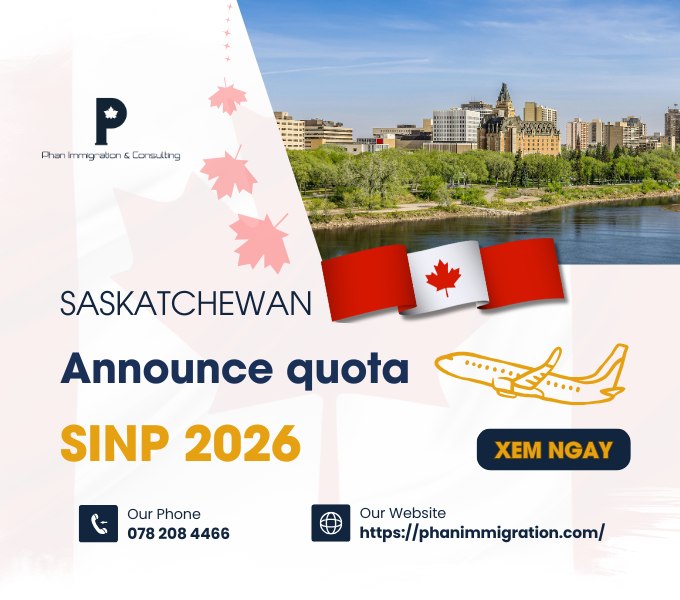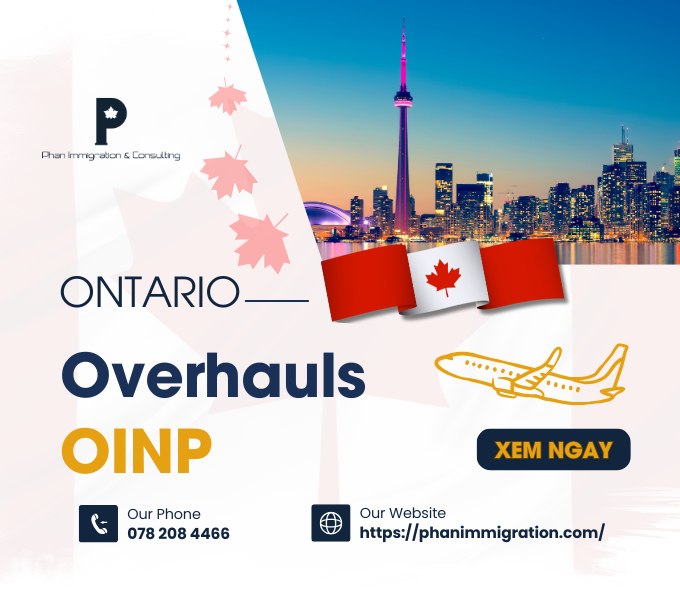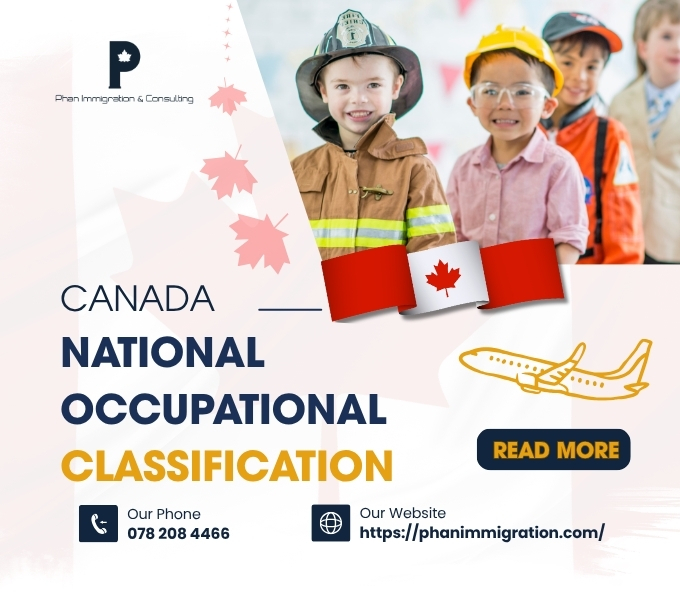LMIA (Labour Market Impact Assessment) is one of the essential and indispensable factors in the process of seeking employment and immigrating to Canada through a work pathway. It is considered a “permit” that allows Canadian employers to hire foreign workers, while also serving as a basis for the government to assess the impact of such hiring on the domestic labor market. Therefore, understanding the role of LMIA helps workers better prepare when aiming to work long-term and eventually settle in Canada.
What is LMIA Canada?
LMIA (Labour Market Impact Assessment) is a document that assesses the impact of hiring a foreign worker on the Canadian labor market. Canadian employers must obtain an LMIA before hiring international workers to ensure that no Canadian citizen or permanent resident is qualified for the position.
An LMIA is a legally binding document that confirms no Canadian citizen or permanent resident is available to fill the specific job, thereby allowing the employer to hire a foreign worker. This document is often referred to as a “confirmation letter.” Once the LMIA is approved, the foreign worker can proceed to apply for a Canadian work visa to legally work in Canada.

When assessing an LMIA, there are two possible outcomes:
- Positive LMIA: Indicates that no local candidate meets the job requirements, allowing the employer to hire a foreign worker for a full-time position.
- Negative LMIA: Occurs when the employer does not meet all program requirements or when hiring a foreign worker may negatively impact the Canadian labor market. In this case, the employer is not permitted to hire a foreign worker for the position.
Common Types of LMIA
LMIA is issued when an employer needs to hire a foreign worker due to the unavailability of a suitable domestic candidate. The common types of LMIA include:
- High/Low-Wage Positions: Applies to jobs with wages higher or lower than the regional median wage.
- Agricultural Positions: For workers in the agricultural sector.
- Caregiver Positions: For those providing care to children, the elderly, or individuals with medical needs.
- Support for Permanent Residency: For skilled workers applying for immigration through the Express Entry system.
- Global Talent Stream: Supports recruitment of highly specialized talent in specific industries.
- Hiring in the Province of Quebec: Applies specifically to employers hiring workers in Quebec

The Importance of LMIA for Stakeholders
The Labour Market Impact Assessment (LMIA) affects not only the foreign worker recruitment process but also plays a significant role for various stakeholders. LMIA helps the government manage the labor market, supports employers in finding suitable talent, and creates opportunities for foreign workers to access employment in Canada.
For the Government of Canada
LMIA plays a vital role in managing the labor market and protecting domestic workers’ rights. Its significance for the Government of Canada includes:
- LMIA is a key tool for the Canadian government to regulate unemployment by assessing actual labor market needs.
- LMIA data helps the government develop and adjust hiring policies to ensure a balance between labor supply and demand.
- LMIA reflects labor market fluctuations in Canada, allowing the government to adapt recruitment policies to specific periods and needs.
- The government uses LMIA to identify occupations facing labor shortages and decide whether to grant work permits to foreign workers.
- LMIA helps control illegal employment and prevent the exploitation of foreign workers.
- LMIA supports fairness in the labor market by protecting the rights of Canadian citizens and immigrant workers.
- LMIA allows businesses to hire skilled and experienced foreign labor, reducing training time and costs while efficiently meeting job demands.
- LMIA contributes to the internationalization of Canada’s workforce while ensuring job opportunities for domestic workers.
- This policy enables Canada to attract high-quality talent from around the world and maintain stability in the domestic labor market.

For Employers
Employers need an LMIA when they wish to hire foreign workers due to the unavailability of suitable candidates within Canada. The benefits of LMIA for employers include:
- LMIA is a mandatory document that Canadian employers must obtain before hiring foreign workers if no suitable domestic candidates are found, even after a period of job posting.
- It helps businesses address labor shortages, ensuring workplace stability and maintaining business performance.
- Allows access to skilled and experienced foreign workers, reducing training costs compared to hiring unskilled domestic labor.
- Shortens the recruitment process and improves work efficiency by employing workers who already possess specialized skills that meet industry demands.
- LMIA supplements the workforce in sectors less favored by local workers, such as cleaning, agriculture, caregiving, or housekeeping.
- It enables employers to recruit foreign workers from various countries such as the Philippines, India, Mexico, and the Caribbean—regions known for having a labor force ready to take on such roles.

For International Workers
For international workers, LMIA is a key factor that enables them to work legally in Canada. The main benefits include:
- The LMIA policy opens up opportunities for foreign workers to access the Canadian job market, which is known for its professional work environment and comprehensive social welfare system.
- Workers receive protection and support from the Canadian government, ensuring fair wages, insurance benefits, and safe working conditions.
It is not only a chance to work but also a pathway to building a stable career and pursuing long-term settlement in Canada. - LMIA can assist foreign workers in obtaining a work permit, which may also allow them to bring their families to Canada under the appropriate program. This offers the chance to enjoy a high-quality life with world-class education and healthcare, fostering well-rounded development for their children.

LMIA Application Procedure in Canada
The LMIA application process may vary depending on the province, especially in Quebec, which follows its own regulations governed by the provincial authority. Below is a detailed step-by-step guide for applying for an LMIA in Canada:
LMIA Process in Provinces Outside Quebec
Once a positive LMIA decision is received, the foreign worker must complete the Canada work permit program application process.
Step 1: Prepare all required documents
The applicant must provide:
- A copy of the valid LMIA decision letter
- A job offer letter and employment contract provided by the Canadian employer
- A completed “Application for Work Permit Made Outside of Canada” (Form IMM 1295), if applying from abroad
- Educational credentials, proof of work experience, and relevant certifications
- A valid passport and a police clearance certificate (if required)
- A medical exam certificate (for specific occupations)
Step 2: Submit the work permit application
The application can be submitted through the IRCC online portal or at a Canadian visa office abroad. Processing times may vary by country.
Step 3: Biometrics and additional requests
In some cases, applicants will be required to submit fingerprints and a photo (biometrics).

Step 4: Receive Decision & Enter Canada
Once the work permit application is approved, the worker will receive a Port of Entry (POE) Letter of Introduction. Upon arrival in Canada, they must present this letter along with their passport and other required documents at the port of entry to receive the official work permit.
Note: If the application is submitted from within Canada, the work permit will be sent by mail.
LMIA Application Process in Quebec
The LMIA application process in Quebec follows specific steps, including unique requirements such as wage determination and file review by Service Canada. While generally similar to other parts of Canada, Quebec has key differences that employers must be aware of.
Quebec operates its own provincial immigration program—the Quebec Skilled Worker Program. Under this program, employers can hire foreign workers who already hold a Quebec Selection Certificate (CSQ) without needing an LMIA. However, if the worker is not eligible or has not yet reached the required stage, the employer must still apply for an LMIA through the federal government to secure a work permit.
When applying for a work visa in Quebec, the employer must submit a provincial visa application known as “Demande de Sélection Temporaire” (DST) alongside the LMIA application. Service Canada will coordinate with the Ministère de l’Immigration, de la Francisation et de l’Intégration du Québec (MIFI) to process both applications simultaneously and issue a final decision.
If approved:
- The employer will receive an LMIA approval letter.
- The foreign worker will receive a Certificat d’Acceptation du Québec (CAQ).
The worker must submit both documents when applying for a work permit, and both documents must be valid for the same period.
The LMIA process in Quebec generally includes:
- Completing the LMIA application form
- Providing the required documentation
- Paying the LMIA processing fee
However, employers must also demonstrate that they have submitted the DST application to MIFI to complete the LMIA process in Quebec.

LMIA Review Policy in 2025
The LMIA review policy has been adjusted to balance the labor needs of employers with the rights of Canadian citizens. Processing times may vary depending on the LMIA stream, with High-wage and Low-wage applications undergoing separate assessments, as detailed below:
For the High-Wage Stream
On October 21, 2024, Canada announced key changes to the LMIA review policy for the High-wage stream:
- Starting from October 28, 2024, employers can no longer use confirmation letters from accountants or lawyers to prove business legitimacy when submitting LMIA applications.
- From November 8, 2024, employers applying for a High-wage LMIA must offer a wage at least 20% higher than the provincial or territorial median wage.
Example: If the current median wage in Ontario is $30.00 CAD/hour (approximately 536,054 VND/hour), then after November 8, 2024, the employer must offer at least $36.00 CAD/hour (approximately 643,265 VND/hour) to qualify under the High-wage LMIA stream.
If the employer offers less than $36.00 CAD/hour (643,265 VND/hour), the application will be assessed under the Low-wage LMIA stream, which means:
- The position will not be approved if located in an area with an unemployment rate above 6%.
- The work permit will be limited to a 1-year duration.
- The employer may only hire foreign workers up to 10% of their total workforce.
This new policy is expected to affect over 34,000 applications, forcing many employers to either raise wages or accept the restrictions when hiring foreign workers.

For the Low-Wage LMIA Stream
The Government of Canada has announced a reduction in the number of temporary foreign workers entering Canada under the Low-wage stream (positions paying below the median wage) through the Temporary Foreign Worker Program (TFW). The following changes have been in effect since September 26, 2024:
- LMIA applications will not be approved for positions located in cities with an unemployment rate of 6% or higher, except for certain occupations in specific sectors: primary agriculture, food processing, fish processing, construction, and healthcare.
- Canadian employers are allowed to hire a maximum of 10% of their total workforce for low-wage positions. However, the previous limit of 20% still applies to businesses in the following sectors: construction, food manufacturing, hospitals, and nursing and residential care facilities.
- The work permit duration for Low-wage LMIA has been reduced from 2 years to 1 year.
- From September 3, 2024, to November 30, 2025, certain Low-wage LMIA applications in the Montréal economic region will not be accepted.
- From March 3 to November 30, 2025, this restriction will also apply to the Laval economic region.

FAQs about LMIA Canada
How long does LMIA processing take?
LMIA processing times can vary due to several factors, including the volume of applications received by the Temporary Foreign Worker (TFW) Program. The table below, updated monthly, shows the average processing time (in business days) for LMIA applications that were finalized in the previous month. These numbers may fluctuate significantly each month depending on the number of LMIA applications received.
| Program | Processing Time (Business Days) |
| Global Talent Stream | 13 |
| Agricultural Stream | 17 |
| Seasonal Agricultural Worker Program | 9 |
| High-wage Stream | 72 |
| Low-wage Stream | 81 |
| Permanent Resident Stream | 163 |
What is the relationship between a Job Offer, LMIA, and Work Permit in Canada?
In Canada, a job offer is an employment letter from a Canadian employer detailing wages, duties, and conditions. An LMIA (Labour Market Impact Assessment) is government approval allowing that employer to hire a foreign worker, often required to support a work permit application. A work permit legally authorizes the foreign national to work in Canada—usually tied to one employer and position (Closed Work Permit). Working outside the approved terms may lead to permit cancellation or removal from Canada.
Who Needs an LMIA?
An LMIA (Labour Market Impact Assessment) is required for most employers hiring foreign workers and for applicants seeking a Canadian work permit. It proves there’s a labor shortage in a specific role. Some workers are LMIA-exempt, including those under international trade agreements (e.g., CUSMA), cultural or academic exchanges, or holding an Open Work Permit under the International Mobility Program Plus. LMIA approval is essential for both work permit applications and many immigration pathways, so applicants should apply within its validity period.
If you need guidance on LMIA or permanent residency opportunities, contact Phan Immigration at 078 208 4466 for personalized assistance. As a Canada-authorized immigration consulting firm, we provide safe, effective, and cost-optimized immigration solutions tailored to each individual.





![[Phan Immigration Answers] How Much Money Can You Bring When Immigrating to Canada?](https://phanimmigration.com/wp-content/uploads/2025/06/how-much-money-can-you-bring-when-immigrating-to-canada-thumbnail.jpg)


